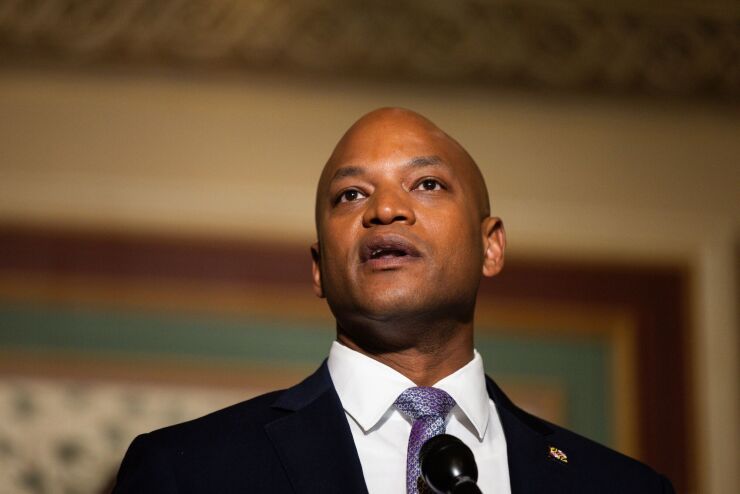
The Trump administration has added financial stress to Maryland's growing list of hardships by denying Democratic Gov. Wes Moore's appeal for $33.7 million for flood relief money from the Federal Emergency Management Agency.
"FEMA has a responsibility to weigh the merits of each emergency request objectively," said Moore. "Instead, President Trump and his Administration have politicized disaster relief, and our communities are the ones who will pay the price."
The floods happened in Allegany and Garrett counties in the northwest end of the state in May, doing an estimated $10 million of damage in the small town of Westernport which has a population of about 1,800 people and an annual budget of about $2 million.
The original request was denied in July.
FEMA funding for disaster recovery or the lack thereof can affect a municipality's credit rating and influence future bond sales depending on how quickly an area can recover from a natural disaster.
Trump signaled that FEMA aid requests from Missouri, Nebraska, Alaska and North Dakota would all be approved.
Maryland has emerged as a financial punching bag for the federal government as it has shed over 15,000 jobs due to the administration's efforts to downsize the federal workforce.
Last week the state announced it approved an early buyout for over 300 employees as part of a plan to eliminate 502 state jobs. The plan is expected to carve $27.4 million from the state's fiscal 2026 budget and $47.2 million in fiscal 2027.
"Maryland has never been tested like this before," said Moore, "all the easy decisions are gone."
The Governor is currently feuding with the U.S. Department of Transportation over who is paying for rebuilding the tolled Francis Scott Key Bridge over Baltimore Harbor.
The bridge was demolished in a collision with a container ship in March 2024.
Earlier this month and despite the financial hardships, Maryland's Capital Debt Affordability Committee, reaffirmed its
Maryland continues to stage successful bond sales after suffering a credit downgrade from Moody's Ratings on it its issuer rating, and general obligation bonds to Aa1 from Aaa in
FEMA's role in providing disaster relief and who is in charge of the agency is currently under review from Congress as the House Transportation and Infrastructure Committee passed a bipartisan reform package in
The bill is designed to restore FEMA to its independent, cabinet-level agency status and make it directly accountable to the president. Its Public Assistance program would shift from a reimbursement model to a grant model, a move designed to reform permitting and speed up projects.
The bill is currently stuck in a stalled Congress due to the shutdown but enjoys broad support from municipal bond issuer groups including the National Association of Counties.
"This legislation provides long-overdue reforms to streamline disaster recovery, increase transparency and efficiency and make federal assistance more accessible to the communities we serve," said Mathew Chase, CEO and executive director for NaCo via a letter.





